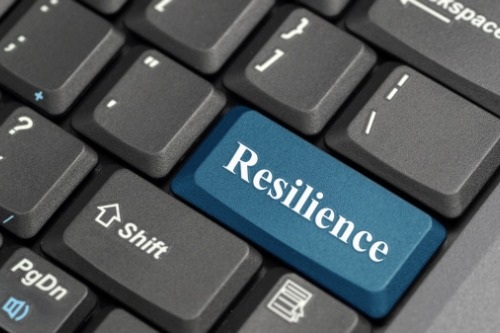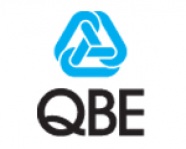Resilience in an unpredictable year

Authored by QBE Executive Director Cécile Fresneau
The world is in a very different place now than when Airmic members were asked about the risks that most concerned them. Impacts of Covid-19 will be felt across each of the megatrends outlined in the recently published Airmic report: Top risks and Megatrends 2020.
In 2019, QBE ran a programme of research which empirically proved that the world was increasingly unpredictable.
Our research spanned the megatrends elaborated in the report. While there were clearly identified peaks and troughs in certain pillars, one resounding truth was the interconnectivity of factors.
Megatrends do not exist in isolation, they perpetually change and are changed by one another.
In response, companies need to take a critical look at where risk management fits into the board level agenda. Is it a tick box exercise or a core part of the strategic agenda? Risk management has a critical role to play in assisting companies with growing unpredictability.
Questions companies and their boards might wish to ask themselves are:
• How much time and focus do the senior executive teams and board spend on understanding, assessing and discussing risks through the year?
• Is the time spent discussing risks and mitigation strategies commensurate with the potential impact of that risk?
• If not, why not? To what extent is the team’s thinking more or less influenced by frequency than severity? What would one have to believe for a risk and associated scenarios to become a reality? How are short term and long-term dynamics managed?
The thought process triggered by the above questions might highlight the unconscious biases that may be shaping the risk discussion and where it sits on a senior team’s agenda as well as inform different and better approaches.
Increased volatility and uncertainty will require a more in-depth conversation around risk, supported by modelling, scenario planning and more granular information. Risk will not go away, but it will change. The best we can do is be informed, prepare and be resilient.
Resilience in an unpredictable year
An excerpt from Airmic report: Top risks and Megatrends 2020
Even before ‘coronavirus’ became the dreaded catchword around the world, the writing was already on the wall – 2020 was set to be a year of heightened unpredictability.
The UK general election of December 2019 might have settled the Brexit question, but uncertainty over the post-transition arrangement between the UK and the EU remains, with the risk of a no-deal scenario still a possibility. Meanwhile in the US, voters will decide whether President Donald Trump will win another term in office, while its trade wars with China and the EU will continue to hamper global trade and economic growth.
The Covid-19 pandemic has brought uncertainty to a whole new level. While there is much debate as to whether governments and businesses could have been better prepared for the outbreak of Covid-19, it has had the effect of exacerbating trade-related risks, people risks and cyber risks.
As the UK moved into lockdown in March, our survey respondents were most concerned about business interruption following a cyber event in terms of the principal risks they face today, the loss of reputation and brand value, and the failure of operational resilience, while diseases and pandemics was placed just fourth on the list.
While the coronavirus outbreak is the overriding preoccupation of risk managers today, what the findings point to is that the Covid-19 crisis is manifesting itself through the megatrends and medium-term risks such as trade-related risks, people risks and cyber risks.
Unpredictability
Published in 2019, the QBE Unpredictability Index tracked a set of indicators between 1987 to 2017 across five pillars: business, economic, environmental, political and societal to determine whether the world was becoming more unpredictable.
The research also surveyed 1,300 business leaders from across the UK, France, Spain, Germany, Italy, and the Nordic countries to examine how prepared businesses felt they were for the future.
According to the Index, the world is a less predictable place for businesses. Almost all of the ‘least predictable years’ in the Index have occurred in the past 20 years, with the majority during the past ten years. Interestingly, the research also showed that periods of unpredictability come in five-year cycles and the next peak was expected to hit in 2020.
“Our research suggests that periods of instability are getting longer and that we are perhaps seeing a trend emerge, The most unpredictable years in our index were 2010 and 2015, and already last year we were predicting 2020 to be another year of heightened unpredictability.” - Cécile Fresneau, UK Executive Director at QBE.
Periods of unpredictability seem to be cyclical because of the nature of macro-economic measures and electoral cycles. Nevertheless, the implications of growing unpredictability for business are many and varied, and can be felt and indeed driven by the megatrends discussed in this report. Unpredictability could lead to more volatile earnings, given uncertain demand and potentially higher costs. Climate change is already exposing assets and supply chains to more intense storms, floods and rising sea levels. Just more complex, regulations, governance and reporting requirements are increasing. Businesses and their senior managers are being held more accountable for their actions, evidenced by increased litigation and regulatory scrutiny for companies and their directors. Stakeholder expectations of corporate behaviour and ethics are also changing.
“One of the most striking findings of our research was the interconnectedness of factors, Volatility in one area can have repercussions in another, prolonging a period of uncertainty and exacerbating its affect. With this in mind, businesses must consider the megatrends outlined in this report in terms of how they interact and agitate one other, and develop resilience plans that address the entirety of the risk and the reality of their impact.” - Cécile Fresneau, UK Executive Director at QBE.
The QBE Unpredictability Index findings strike a chord with the Airmic member research, which shows increasing concern among risk managers for political and social developments, as well as broader technological changes and climate change.
Resilience
One of the most concerning findings of the QBE Unpredictability research was the level of optimism among businesses about their ability to deal with unforeseen events, compared to the steps they were taking to mitigate the risks.
Three in four businesses QBE spoke to felt positive about their ability to deal with unpredictable events, but only 29% had risk management plans in place for such events, while even less (17%) carried out stress tests.
The Airmic Resilience and Transformation Model, introduced in the 2018 publication Roads to Revolution, lays out eight principles for achieving resilience in the digital age.
They include the proactive principles seen in resilient organisations that operate an exceptional risk radar focused on emerging risks, as well as the reactive principles seen in resilient organisations that review and adapt to changes and adverse events.
Furthermore, transformational organisations additionally require specific focus on protection and enhancement of the reputation the organisation. This can often result in more successful crisis management, which is pertinent in this time of the Covid-19 pandemic. When successfully achieved, it can build the reputation of the organisation by demonstrating the quality of management and governance capabilities within the organisation.
“Businesses and their leaders will not be able to rely on the defences of the past to manage the risks of the future, They will need to develop new skills and tools to identify, understand and mitigate risk, and they will need to be open to collaboration. Many of the emerging challenges – such as mitigating the effects of climate change or protecting complex digital supply chains – will require organisations to work in partnership and build collective resilience.” - Cécile Fresneau, UK Executive Director at QBE.
Conclusion
Preparing for risks on the scale of the Covid-19 pandemic may well be a task beyond the capacity of businesses and even some governments. Pandemics often feature as high impact but nevertheless low likelihood events in the risk registers of companies, which mitigates against boards and executives dedicating ever more resource to pandemic preparedness.
That is where businesses and organisations can take a leaf out of QBE’s Unpredictability Index. If waves of unpredictability indeed continue to occur in five-year cycles, it provides a timeframe for them to map out their risk horizon and consequently their investments into measures to control those risks and megatrends.
“Risk management is part of the antidote to unpredictability but some threats are more existential, Adaptation is critical to surviving and thriving in uncertain times. Business strategies and operating models need to reflect changing environments and investment made – in terms of both time and money – to ensure companies have the wherewithal to deal with the risks of today and tomorrow." - Cécile Fresneau, UK Executive Director at QBE.
“As the size and complexity of risk grows, risk management and governance frameworks are becoming more sophisticated, and boards are increasingly demanding better information on risk. Challenging questions need to be asked about the sustainability of a business and its continued relevance to its customers. Equally, boards need to fully understand their worst-case scenarios and be confident that, balance sheet constraints notwithstanding, the steps taken to manage these risks are enough. Unpredictability is also a tremendous source of upside risk, as it provides opportunities for those who are willing and able to be more creative and bold to thrive with new services, products and business models.” - Cécile Fresneau, UK Executive Director at QBE.
Preparation is the key to building resilience. Organisations that survive and succeed in an environment of enhanced unpredictability will be those that are best prepared.
About QBE
QBE European Operations is part of QBE Insurance Group, one of the world’s leading international insurers and reinsurers and Standard & Poor’s A+ rated. Listed on the Australian Securities Exchange, QBE’s gross written premium for the year ended 31 December 2018 was US$13.7 billion.
As a business insurance specialist, QBE European Operations offers a range of insurance products from the standard suite of property, casualty and motor to the specialist financial lines, marine and energy. All are tailored to the individual needs of our small, medium and large client base.
We understand the crucial role that effective risk management plays in all organisations and work hard to understand our clients’ businesses so that we offer insurance solutions that meet their needs – from complex programmes to simpler e-trading solutions – and support them in minimising their risk exposures. Our expert risk management and rehabilitation practitioners focus on helping clients improve their risk management so that they may benefit from a reduction in claims frequency and costs.

